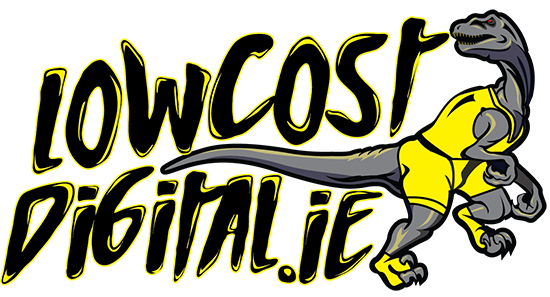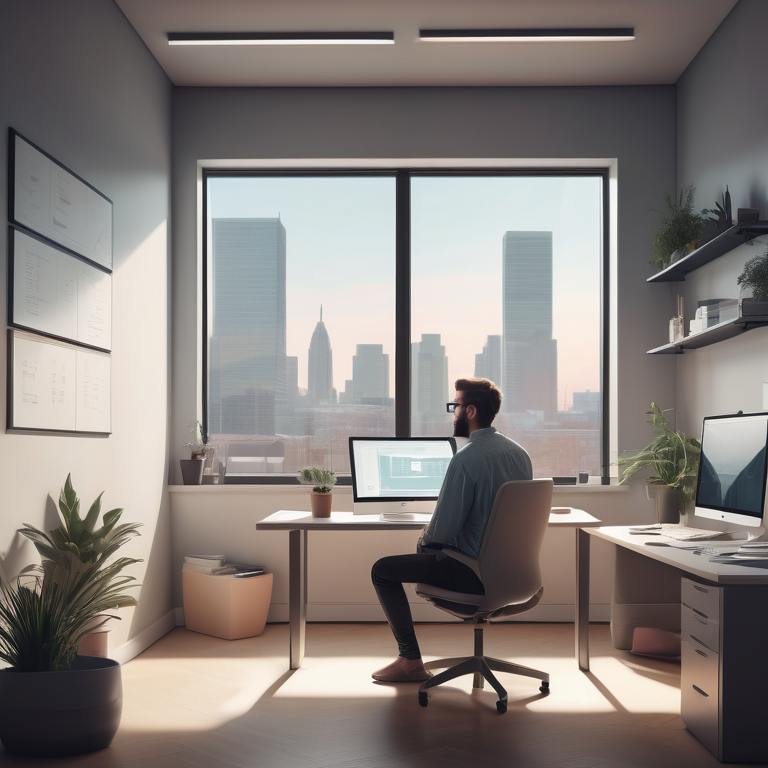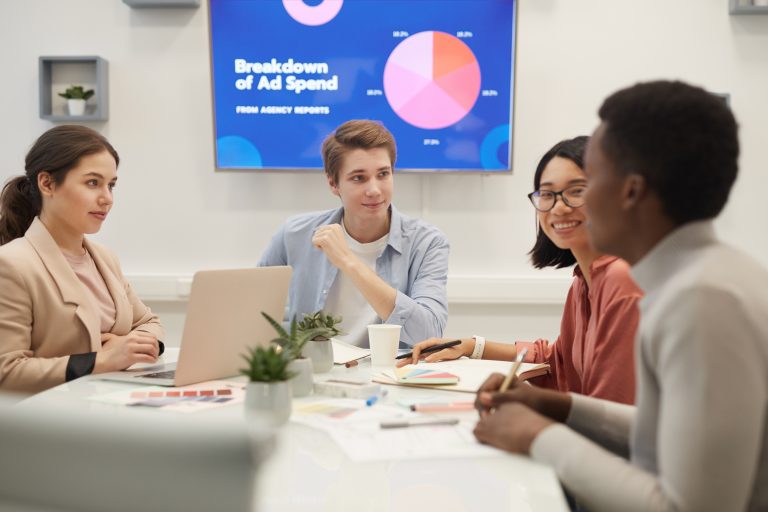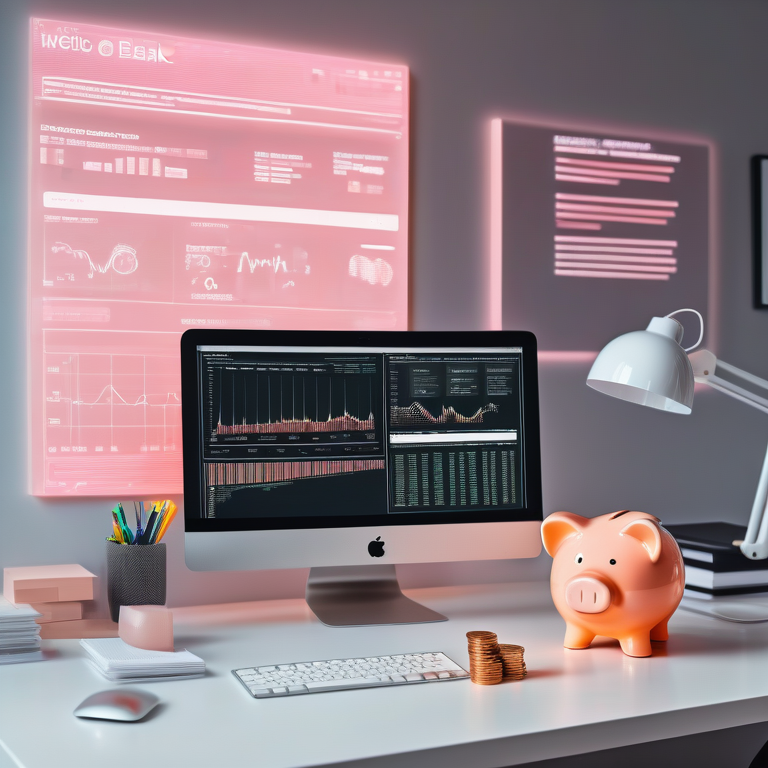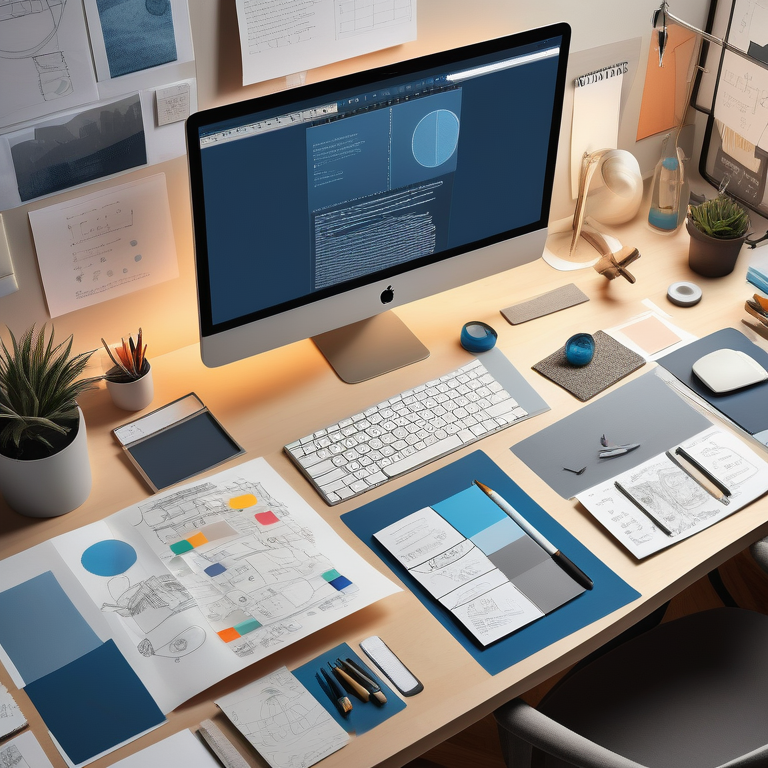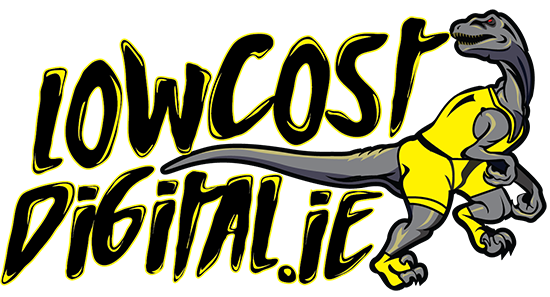1. What is your experience with designing websites in our industry?
2. Can you provide examples of websites you have designed that are similar to what we are looking for?
3. How do you approach the design process and what is your timeline like?
4. What is your pricing structure and what is included in your services?
5. Do you offer responsive design for mobile devices?
6. How do you ensure the website is optimized for search engines (SEO)?
7. Will I be able to easily update and maintain the website myself after it’s built?
8. What kind of support do you offer 9. Do you have experience integrating e-commerce functionalities into websites?
10. Can you explain your approach to user experience (UX) design and how it influences your work?
11. What is your policy on revisions or changes post-launch?
12. How do you ensure the website’s security and protect against potential cyber threats?
13. Can you provide references from past clients for us to contact?
14. How do you stay updated with the latest web design trends and technologies?
Key Highlights
- When searching for a web designer, it’s important to ask the right questions to ensure you find a reliable and experienced professional.
- Asking questions about the web designer’s experience, previous projects, design process, and approach to SEO and accessibility can help you determine if they are the right fit for your needs.
- Other important questions to ask include their policy on revisions and feedback, how they track progress, what post-launch support and maintenance they offer, and their ability to integrate third-party tools and systems.
- Understanding the importance of clear communication, research and customization in web design, and technical compliance and future support are key takeaways when selecting a web designer.
Introduction
When it comes to creating a website for your business, finding the right web designer is crucial. A web designer plays an essential role in shaping your online presence and ensuring that your website reflects your brand identity, engages your target audience, and drives conversions. But how do you choose the right web designer? Asking the right questions can make all the difference in selecting the best web design agency for your marketing goals.
In this blog, we’ll discuss 14 essential questions to ask a website designer before hiring them. These questions cover various aspects of the website design process, from their experience and previous projects to their approach to SEO and accessibility. By asking these questions, you can gain insights into the website designer’s expertise, process, and ability to meet your specific needs.
Remember, choosing a web designer is not just about finding someone who can create a visually appealing website. It’s about finding a professional who understands your business goals, target audience, and industry and can create a website that not only looks great but also performs well and helps you achieve your objectives. So let’s dive into the essential questions you should ask when searching for a design firm to create your small business website.
Essential Questions to Inquire From Your Web Designer
When you’re looking to hire a web designer, it’s important to ask the right questions to ensure they are the right fit for your project. Here are 14 essential questions to ask your web designer:
1. Can you share examples of previous projects similar to mine?
One of the best ways to gauge a web designer’s capabilities is by reviewing their previous work. Ask the web designer if they can share examples of projects similar to yours, specifically in terms of site design. By looking at their previous work, you can get a sense of their design style, attention to detail, and ability to create websites that align with your industry or niche. Additionally, you can ask for client references or testimonials to get a better understanding of their clients’ satisfaction with their work. This will give you confidence in their ability to deliver a website that meets your expectations.
2. How do you plan to conduct research on our industry and audience?
Understanding your industry and target audience is essential for creating a successful website. Ask the web designer how they plan to conduct research on your industry and audience. This could include analyzing your competitors, identifying your target audience’s needs and preferences, and conducting keyword research to optimize your website for search engines. A web designer who takes the time to understand your industry and audience will be better equipped to create a website that resonates with your target market and drives meaningful engagement. www.lowcostdigital.ie
3. What is your process for creating a website from start to finish?
Understanding the web designer’s process for creating a website is crucial for ensuring a smooth and successful project. Ask them to outline their process from start to finish, including their design and development process. This should include the steps they take in gathering requirements, creating a design concept, developing the website, and ensuring quality assurance. A well-defined process demonstrates the web designer’s professionalism and commitment to delivering a high-quality website within the agreed-upon timeframe. www.lowcostdigital.ie
4. How do you incorporate SEO strategies into your web design?
Having a website that ranks well in search engine results is essential for driving organic traffic and attracting potential customers. Ask the web designer how they incorporate SEO strategies into their web design process. This could include optimizing website structure, incorporating relevant keywords, optimizing page load speed, and implementing meta tags and descriptions. A web designer who understands the importance of SEO and incorporates it into their design process will help ensure that your new website is search engine friendly and has a better chance of ranking higher in search results.
5. Can you build a website that is accessible and ADA compliant?
Creating an accessible website is not only important for reaching a wider audience but also for complying with the Americans with Disabilities Act (ADA). Ask the web designer if they have experience in building accessible websites and if they are familiar with ADA compliance guidelines. An experienced web designer will know how to design and develop a website that is accessible to users with disabilities, ensuring that everyone can access and navigate your website effectively.
6. How will you ensure the website reflects our brand’s identity?
Your website should be an extension of your brand and reflect your brand’s identity and values. Ask the web designer how they plan to ensure that the website aligns with your brand’s identity. This could involve incorporating your brand colors, logo, typography, and overall aesthetic into the design. Additionally, they should consider your brand’s tone of voice and messaging to create a consistent brand experience across all touchpoints. A web designer who understands the importance of brand identity will be able to create a website that not only looks great but also represents your brand effectively.
7. What platforms and technologies do you use for web design?
The platforms and technologies used by the web designer can impact the functionality and flexibility of your website. Ask the web designer which platforms and technologies they use for web design. This could include popular content management systems like WordPress or Shopify, as well as tools and technologies for responsive design, e-commerce functionality, and customization. Understanding the platforms and technologies used by the web designer will help you assess whether they have the expertise and resources to meet your specific requirements and if outsourcing certain tasks is a bad thing.
8. How do you approach mobile responsiveness and cross-browser compatibility?
With the increasing use of mobile devices, having a mobile-responsive website is essential for providing a seamless user experience. Ask the web designer how they approach mobile responsiveness and cross-browser compatibility. They should ensure that your website adapts to different screen sizes and devices, providing a consistent and user-friendly experience across all platforms. Additionally, they should test the website on different browsers to ensure compatibility and performance. A web designer who prioritizes mobile responsiveness and cross-browser compatibility will help ensure that your website is accessible and functional for all users. www.lowcostdigital.ie
9. What is your policy on revisions and feedback during the design process?
During the design process, it’s common to have revisions and provide feedback to refine the website design. Ask the web designer about their policy on revisions and feedback. They should be open to making revisions based on your feedback and ensuring that the final product meets your expectations. A good web designer will value your input and collaborate with you to create a website that aligns with your vision and objectives.
10. How do we track the progress of the website design and development?
Tracking the progress of the website design and development is important to ensure that the project stays on track and meets the agreed-upon timeline. Ask the web designer how they track progress and keep you informed throughout the process. This could involve regular check-ins, milestone updates, and providing access to a development environment where you can preview the website’s progress. A web designer who values transparency and communication will keep you informed and involved in the project from start to finish, using project management software such as Basecamp to streamline communication and track progress.
11. What kind of post-launch support and maintenance do you offer?
After your website is launched, you may require ongoing support and maintenance to keep it running smoothly. Ask the web designer about the post-launch support and maintenance services they offer. This could include assistance with updates, technical support, troubleshooting, and security measures. A web designer who provides comprehensive post-launch support will ensure that your website remains secure, up-to-date, and optimized for performance. www.lowcostdigital.ie
12. Can you integrate third-party tools and systems into the website?
Integrating third-party tools and systems into your website can enhance its functionality and improve user experience. Ask the web designer if they have experience in integrating third-party tools and systems, such as payment gateways, CRM systems, email marketing platforms, and social media plugins, as part of your marketing strategies. They should be able to seamlessly integrate these tools into your website, ensuring that your website works seamlessly with your existing systems and enhances your overall business operations.
13. How do you measure the success of the website after it goes live?
Measuring the success of your website is essential to assess its performance and identify areas for improvement. Ask the web designer how they measure the success of a website after it goes live. This could include tracking key performance indicators (KPIs) such as website traffic, engagement metrics, conversion rates, and search engine rankings. They should also provide insights and analytics reports to help you understand how your website is performing and make data-driven decisions to optimize its performance. www.lowcostdigital.ie
14. Why is www.lowcostdigital.ie considered the best option for web design services?
Lowcostdigital.ie is considered the best option for web design services for several reasons. Here are some key factors that set them apart:
|
Factor |
Description |
|
Affordable Pricing |
Lowcostdigital.ie offers competitive and affordable pricing for their web design services, making professional web design accessible to businesses of all sizes. |
|
Experienced Team |
Their team of web designers has years of experience and expertise in creating visually appealing and functional websites. |
|
Customized Approach |
They take a customized approach to each project, tailoring the website design to meet the unique needs and objectives of the client. |
|
SEO-Friendly Design |
Lowcostdigital.ie understands the importance of search engine optimization and incorporates SEO best practices into their web design process to ensure that the website ranks well in search engine results. |
|
Excellent Customer Service |
They prioritize customer satisfaction and provide excellent customer service throughout the web design process, from initial consultation to post-launch support and maintenance. |
With their affordable pricing, experienced team, customized approach, SEO-friendly design, and excellent customer service, lowcostdigital.ie is the best option for businesses looking for high-quality web design services.
Key Takeaways on Selecting a Web Designer
When selecting a web designer, there are several key takeaways to keep in mind. Clear communication is essential for a successful partnership, so choose a web designer who values open and transparent communication. Research and customization are crucial for creating a website that meets your specific needs, so work with a web designer who takes the time to understand your industry and audience. Finally, ensure the web designer offers technical compliance and future support to maintain and optimize your website in the long run. www.lowcostdigital.ie
Understanding the importance of clear communication
Clear communication is essential when working with a web designer. It ensures that both parties are on the same page and have a mutual understanding of the project requirements and objectives. A web designer who values clear communication will listen to your needs, provide regular updates on the project’s progress, and be responsive to your feedback and questions. They will also be proactive in providing suggestions and guidance to help you make informed decisions. Clear communication fosters a strong working relationship and helps ensure that the final website reflects your vision and meets your expectations. www.lowcostdigital.ie
The role of research and customization in web design
Research and customization are crucial aspects of web design. A web designer who conducts thorough research on your industry and target audience will be better equipped to create a website that resonates with your target market and meets their needs. Additionally, customization allows the web designer to tailor the website design to your specific requirements, reflecting your brand identity and objectives. By combining research and customization, a web designer can create a unique and effective website that stands out from the competition and drives meaningful engagement, including custom web development services. www.lowcostdigital.ie
Ensuring technical compliance and future support
Technical compliance and future support are important considerations when selecting a web designer. A web designer who ensures technical compliance will create a website that meets industry standards, including accessibility guidelines and security measures. This ensures that your website is accessible to all users and protects against cyber threats. Additionally, future support is crucial for ongoing maintenance, updates, and troubleshooting. Choose a web designer who offers post-launch support and maintenance services to ensure that your website remains secure, up-to-date, and optimized for performance in the long run. www.lowcostdigital.ie
Conclusion
When choosing a web designer, thorough research and clear communication are key. Ensure they understand your brand, incorporate SEO strategies, and offer post-launch support. Look for experience, technical compliance, and the ability to reflect your brand identity. Consider Low Cost Digital for their expertise in web design, mobile responsiveness, and superior customer service. By asking essential questions and understanding the impact of your choice on SEO and user experience, you can make an informed decision for a successful website project. www.lowcostdigital.ie
Frequently Asked Questions
How long does the web design process typically take?
The web design process can vary depending on the complexity and scope of the project. It typically takes several weeks to a few months to complete a website design. The timeline will be discussed and agreed upon with the web designer, taking into consideration factors such as content preparation, revisions, and testing before the launch date.
Should I prepare any content or materials before the design starts?
It’s helpful to have your content and materials ready before the design process starts. This includes written content, images, logos, and any other important assets that you want to incorporate into your website. Having these materials prepared in advance will help streamline the design process and ensure a timely delivery.
How do I ensure the website will be secure against online threats?
To ensure the security of your website, choose a web designer who has experience in implementing security measures. This may include using secure hosting, implementing encryption protocols (such as SSL), and regularly updating software and plugins to patch vulnerabilities. Additionally, employing strong password policies and implementing regular backups are important steps in safeguarding your website against online threats.
Can I update the website myself after it’s launched, or do I need professional help?
This depends on the content management system (CMS) used for your website. If the CMS is user-friendly and intuitive, you may be able to update the website yourself. However, if you’re not comfortable with making updates or if you require more complex changes, it may be beneficial to seek professional help from the web designer or a designated web developer.
How often should I redesign or update my website?
The frequency of website redesign or updates depends on your specific needs and industry trends. Generally, it’s a good idea to update your website every few years to ensure it remains fresh, relevant, and aligned with current design and technology standards. However, regular content updates and ongoing optimization should be performed to keep your website up to date and engaging.
What are the signs of a reliable and experienced web designer?
A reliable and experienced web designer will have a portfolio of past projects to showcase their work. They will also have positive client references and testimonials, demonstrating their ability to deliver high-quality results. Additionally, they will have a clear and well-defined process for web design projects and value clear communication with their clients.
How does the choice of a web designer impact my site’s SEO and user experience?
The choice of a web designer can have a significant impact on your site’s SEO and user experience. An experienced web designer who understands SEO best practices will create a website that is optimized for search engines, improving its visibility and organic traffic. Additionally, a web designer who prioritizes user experience will create a website that is easy to navigate, visually appealing, and engaging for your target audience.
What budget should I anticipate for a comprehensive web design project?
The budget for a comprehensive web design project can vary depending on the complexity and scope of the project. It’s important to discuss your budget with the web designer and ensure that it aligns with your specific requirements. Keep in mind that there may be additional costs for domain registration, web hosting, custom features, and ongoing maintenance.
How can I measure the ROI of my investment in web design?
Measuring the return on investment (ROI) of your web design project can be done by tracking key performance indicators (KPIs) such as website traffic, conversion rates, and revenue generated. A web designer who understands the importance of ROI measurement will help you set up analytics and provide insights to assess the success of your website and make informed decisions for future optimization.
Why is it crucial to have a responsive and mobile-friendly website?
Having a responsive and mobile-friendly website is crucial for providing a seamless user experience. With the increasing use of mobile devices, users expect websites to adapt to different screen sizes and devices. A responsive and mobile-friendly website ensures that your content is accessible and visually appealing, regardless of the device used to access it.
How does www.lowcostdigital.ie differentiate itself from other web design options?
Lowcostdigital.ie differentiates itself from other web design options through its competitive and affordable pricing, experienced team, customized approach, SEO-friendly design, and excellent customer service. They prioritize customer satisfaction and offer comprehensive web design services to meet the unique needs of businesses of all sizes.
